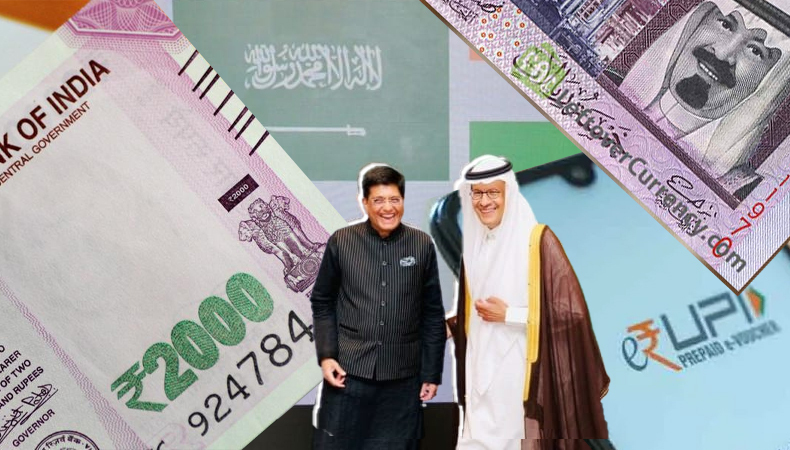India, Saudi Arabia discuss rupee-riyal trade, electronic payments

India and Saudi Arabia have discussed the viability of institutionalising rupee-riyal trade and rolling out UPI and RuPay cards in the kingdom, according to the commerce ministry.
Among other topics, these were covered when Commerce and Industry Minister Piyush Goyal visited Riyadh from September 18 to 19. He was present at the Saudi Arabia-India Strategic Partnership Council’s ministerial gathering.
The ministerial meeting of the council’s Committee on Economy and Investments was co-chaired by Mr. Goyal and Prince Abdulaziz bin Salman Al-Saud, the Saudi Minister for Energy.
The publication listed the main topics of discussion as “diversification and expansion of trade and commerce, removal of trade barriers…automatic registration and marketing authorization of Indian pharmaceutical products in Saudi Arabia, viability of institutionalising Rupee-Riyal trade, introduction of UPI and Rupay cards in Saudi Arabia.”
Read more : Saudi overtakes Russia as India’s no 2 oil supplier in August
Additionally, Mr. Goyal spoke with Prince Abdulaziz bin Salman Al Saud about a number of topics. Mr. Goyal tweeted that he had “discussed how energy security with sensitivity to climate change can enable economic growth and prosperity.”
The 41 areas of collaboration identified by the technical teams under the four major categories of energy, industry and infrastructure, technology and IT, and agriculture and food security were also approved at the ministerial conference.
It also reaffirmed ongoing collaboration in joint projects like the West coast refinery, LNG infrastructure investment, and the construction of strategic petroleum storage facilities in India. It also committed to take on implementation of priority projects in a time-bound way.
The topic of boosting Indian exports and encouraging foreign investment into India was discussed at a CEO Roundtable with industrialists in Saudi Arabia, it was said.
The minister had discussions on a variety of subjects in a separate meeting, including institutional tying up of the two nations’ EXIM banks, cooperative projects in third countries, mutual recognition of standards, and cooperation in infrastructure development.




